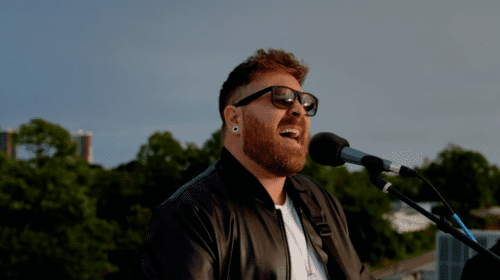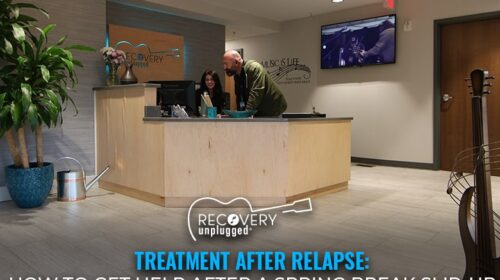With the 54th Super Bowl coming up this Sunday, everyone seems to be planning or attending a party to celebrate. However, there’s a reason the Monday morning after the big game sees the highest rates of workplace call-outs during the year.
This event has transcended the game of football and is one of the most celebrated days of the calendar year. Here in the U.S., a celebration may as well be synonymous with alcohol consumption. For those who love football and have a past with drinking, avoiding relapse during the Super Bowl can be tough.
Roughly 111.3 million people watched Super Bowl LI, and the numbers have continued to grow over the years. Of all these viewers, over half will be drinking while watching the game.
In the weeks leading up to the game, roughly $1.3 billion is spent on drinks to celebrate the game. This drinking culture that surrounds Super Bowl Sunday can put individuals in recovery in a tough spot.
Many people in recovery have a hard time being around alcohol, even after years in recovery. The overwhelming amount of alcohol at Super Bowl parties can make it difficult to avoid relapse during the Super Bowl.
The Tradition of Drinking During the Super Bowl
Alcohol and the game traditionally have gone together. Whether you choose to watch the game at a restaurant or a friend’s house, the booze will likely be flowing. Being surrounded by so much alcohol can make those in recovery susceptible to taking the first step down a destructive road.
Super Bowl Sunday is one of the biggest drinking days of the year. After New Year’s Eve and St. Patrick’s Day, it has the highest spike of people driving under the influence (DIU). Over half of those watching the game will be drinking alcohol on a night in which DUI arrests typically skyrocket.
As a result, 43 percent of all traffic fatalities on Super Bowl Sunday in 2012 were caused by drunk driving according to the National Highway Traffic Safety Administration (NHTSA). Studies have reported an average BAC of .091 percent on Super Bowl Sunday, and drinking violations jump 15 percent.
The Impact of Commercials with Alcohol
With so many viewers annually, the Super Bowl is the most viewed TV program in U.S. history. Due to its popularity, drinking violations have quadrupled in states and regions with teams participating in the game.
Over 100 million people watch the Super Bowl every year. This includes 30 percent of teens and 20 percent of kids ages 2-11 watching the game and commercials.
Out of all the commercials, roughly every 1 in 10 featured alcohol in a positive manner. This is concerning when 20 percent of people ages 12-20 have self-reported drinking.
Commercials that encourage drinking culture can be unsettling due to the issue of underage alcoholism in the United States. Studies have shown that drinking at a young age leads to a higher risk of lifetime alcoholism.
This encouragement and overload of alcohol, alcoholism, and drinking culture can be dangerous for those who aren’t in recovery. What’s worse is that it places those in recovery in uncomfortable and potentially triggering situations.
Staying Sober on Super Bowl Sunday
If you’re in recovery, avoiding relapse during the Super Bowl can be harder than initially thought. This might mean that skipping certain Super Bowl parties is what’s healthiest for you in the long run. Even if your favorite team is playing this year, staying away from parties or other triggers could save your life.
Instead, you can surround yourself and share time with those supporting your sobriety. If there comes a point where you come across thoughts of relapsing, reach out to someone in your support system. Contact a sponsor, therapist, or close loved one in order to make sure you stay on the right track.
Still not sure how to navigate Super Bowl Sunday while in recovery? Check out these tips to make sure you steer clear of relapse this upcoming Super Bowl.
Know Your Limits
In a place where there may be heavy drinking, it’s important to be realistic about how ready you are to be around that kind of behavior. Many have a hard time being around alcohol even after years in recovery.
In an effort to avoid relapse during the Super Bowl, we have to be honest with ourselves regarding our vulnerability. This may mean skipping a more festive celebration in favor of a more low-key, recovery-friendly event. Exercising an abundance of caution can be critical to your sobriety.
Keep Your Friends Close
We cultivate our support system for a reason. They’re the people we can rely on when times get tough or when we find ourselves facing risky situations.
As we prepare to watch the teams take the field this Sunday, precautions should be taken. If you don’t already, make sure to have your therapist, sponsor, or designated loved ones within reach.
Those we love and who love us have committed to helping us on our road to recovery. It’s important to recognize and honor the commitments we’ve made by leaning on them if times get tough.
Remember Your Training
Rehab gives us the tools we need to address temptation and avoid relapse. It’s important to lean on the work we did with addiction treatment professionals in times of distress or heightened temptation.
The object of rehab is to help us stay sober in the face of real-life situations. For those who have struggled with alcoholism or other substance abuse issues, it doesn’t get much more real than Super Bowl Sunday.
By remembering the techniques we developed in rehab, we can better insulate ourselves from a slip.
Recovery Unplugged is committed to helping all patients overcome drug or alcohol addiction. If you or loved one has suffered relapse during the Super Bowl, we’re here to help.
We want you to make it through the Super Bowl clean and sober. If you don’t think you can make it through the night clean, don’t be afraid to contact Recovery Unplugged.

























